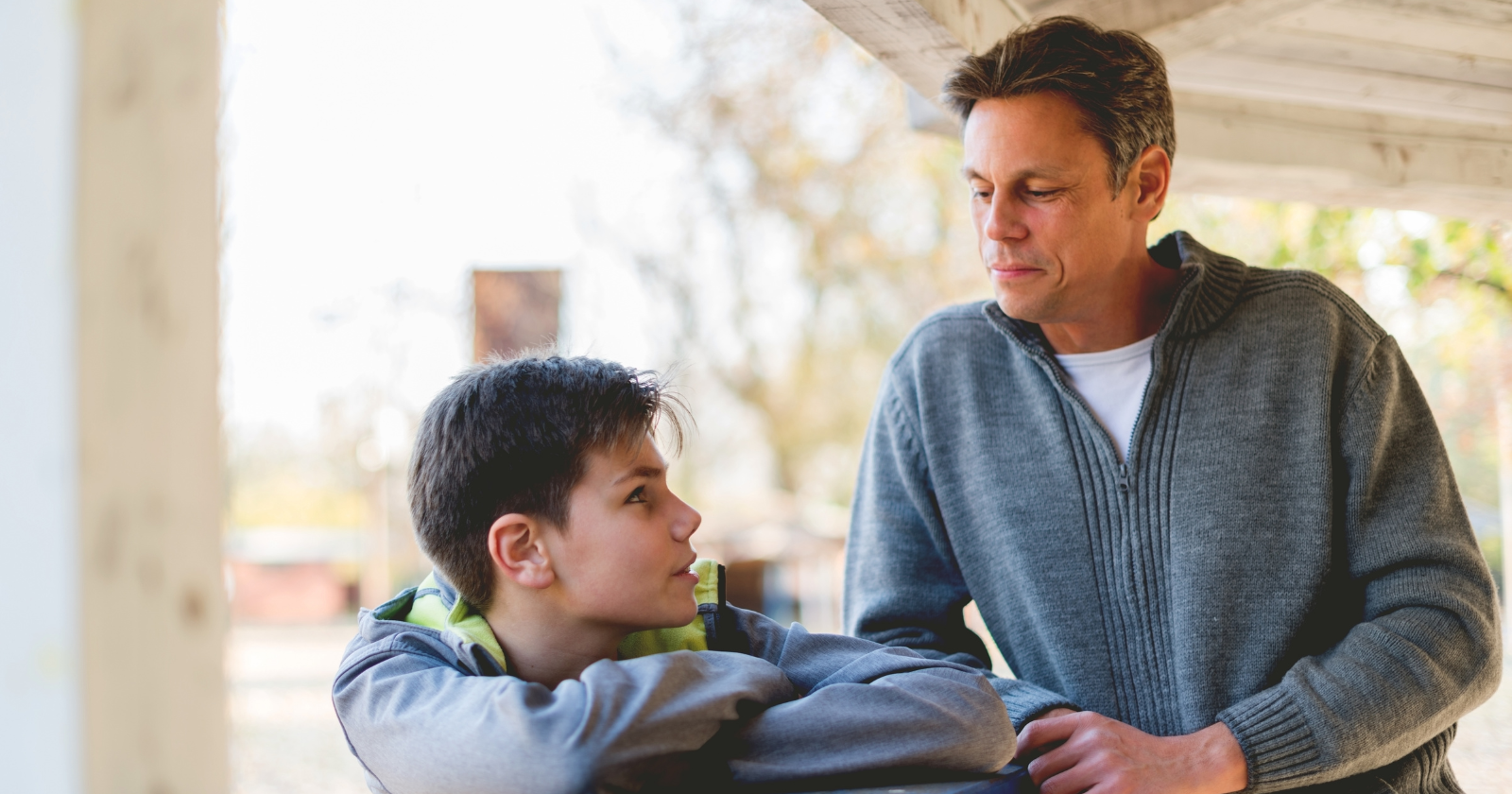Let’s be honest—being a dad isn’t about having all the answers.
It’s about showing up, day after day, even when you’re running on fumes and the toddler’s latest phase involves saying “no” to absolutely everything.
Still, the things we do—our small habits, reactions, and values—tend to echo for years in our children.
They soak up far more from what we do than what we say.
And long after the bedtime routines and packed lunches fade into memory, it’s those lessons that stick.
Here are eight of the most powerful life lessons fathers pass down—often without realizing it—that shape their kids for decades.
1) Effort matters more than perfection
I still remember trying to teach my daughter Elise how to ride her scooter.
She wobbled, fell, scraped her knee, and looked up at me with those teary eyes that make you want to swoop in and fix everything.
Instead, I said, “Falling’s part of learning. Let’s try again.”
That moment, I wasn’t teaching her balance—I was teaching her grit.
Kids don’t need perfect parents.
Related Stories from The Artful Parent
- 7 things people discover about themselves after their children are grown and their career is over that they wish someone had warned them about at 40
- There comes a day when your child stops telling you things — not because something went wrong but because they found someone else to tell — and that’s the version of letting go that no one prepares a parent for
- A child will grow up and forget almost everything about their childhood except how the house felt when they walked in the door — and that feeling was never about the house
They need parents who show that it’s okay to try, fail, and try again.
When dads model that persistence, it builds what psychologists call a growth mindset—the belief that skills and intelligence develop through effort, not luck or innate talent.
As researcher Carol Dweck notes in her book Mindset, “The view you adopt for yourself profoundly affects the way you lead your life.”
That same truth applies to our kids.
When we praise their persistence instead of just the outcome, they learn that success isn’t about being flawless—it’s about staying in the game.
2) Respect begins at home
My son Julien is only 14 months old, but he’s already watching how Camille and I talk to each other.
- Your unhappiness is not a mystery. You know what it would take to change it. The honest answer is that the change frightens you more than the unhappiness does, and you have decided, for now, to stay - Global English Editing
- Psychology says genuinely kind people are often mistaken for naive, but research on moral reasoning shows they usually see the manipulation clearly. They choose kindness knowing the cost, not because they’re blind to it. - Global English Editing
- I’m 65 and my street used to have six families I knew by name and now it has none — and I wave at the new neighbors and they wave back but it’s the kind of wave that says “I see you” not “I know you” - Global English Editing
He notices tone, gestures, even the way I listen when she’s had a long day.
Respect isn’t something we teach in a lecture—it’s something our kids witness daily.
The way a father speaks to a partner, a cashier, or even himself when he makes a mistake sends a clear message: this is how we treat people.
When we model empathy and self-control—especially in tense moments—we’re wiring their future responses to conflict.
And when we apologize after losing our cool (because let’s be honest, it happens), we’re showing that respect isn’t about being perfect; it’s about accountability.
3) Emotions aren’t weakness
I grew up in a time when dads were expected to “toughen up” their boys and tell their daughters not to cry.
Thankfully, that narrative’s fading.
Now, one of the best gifts a father can give is emotional literacy—the ability to recognize, name, and regulate feelings without shame.
If my daughter melts down because her block tower fell, my instinct used to be to distract or fix.
Now I sit beside her and say, “You’re frustrated, huh? It’s okay to feel that way.”
That little moment does more than soothe her; it teaches her that emotions are information, not enemies.
Letting kids express their full range of emotions doesn’t make them fragile—it makes them resilient.
4) Love is shown through presence, not just provision
It’s easy to equate love with providing—a roof, food, tuition, the works.
And yes, that’s part of the deal. But what kids remember most are moments of connection.
When I work from home on Fridays, my goal isn’t to “catch up” on chores—it’s to be there.
I do preschool drop-off, sit through Elise’s endless tea parties, and rock Julien through his contact naps.
Presence isn’t about quantity; it’s about quality.
It’s kneeling to their level when they talk.
It’s looking up from your phone.
It’s making bedtime stories a ritual, not a chore.
These are the invisible deposits in your child’s emotional bank account—the ones that will carry them through tough seasons long after childhood ends.
5) Words carry lasting weight
 We all slip up.
We all slip up.
Maybe you’ve snapped “Hurry up!” for the tenth time that morning or sighed when they spill their milk again.
But as fathers, our words echo.
Kids internalize what we say.
“You’re so clumsy” becomes part of their identity; “You can handle this” becomes their inner voice of encouragement.
That doesn’t mean walking on eggshells—it means being mindful.
When I correct Elise, I try to focus on behavior, not her worth: “That wasn’t kind,” instead of “You’re mean.”
Even our throwaway comments matter.
“I’m proud of how hard you tried” or “Thanks for helping me clean up” might seem small, but they build the quiet confidence that lasts a lifetime.
6) Teamwork is love in motion
In our house, partnership is the backbone of everything.
Camille and I divide the mental and physical load—not perfectly, but intentionally.
She handles bath time while I prep dinner; I take early mornings so she can sleep in.
Our kids see that.
They see that chores aren’t “Mom’s job” or “Dad’s job.”
They’re our job.
When fathers participate fully at home—laundry, dishes, middle-of-the-night wake-ups—it teaches kids two vital lessons: that equality is love, and that responsibility is shared.
Research backs this up.
Children who see their fathers contribute equally at home grow up with more flexible ideas about gender roles and are more likely to seek equitable relationships themselves.
So yes, folding laundry and packing lunches might feel mundane—but those are the moments that redefine what love looks like in the next generation.
7) Integrity means doing the right thing when no one’s watching
A few weeks ago, Elise saw me return a toy she’d accidentally taken from the park sandbox.
“But Daddy,” she said, “no one saw us take it.”
That was a perfect teaching moment.
I told her, “Doing the right thing isn’t about being seen—it’s about being you.”
Integrity is built in those quiet moments—how we talk about others when they’re not around, how we handle mistakes, how we treat the waitress when the order’s wrong.
When fathers model integrity, they give their kids a moral compass that doesn’t sway with convenience.
It’s a gift that keeps them grounded long after we’re gone.
8) Love yourself, so your kids learn how to love themselves
This one took me years to grasp.
When life gets busy, it’s easy to slip into martyr mode—sacrificing rest, hobbies, and sanity “for the family.” But what kids see isn’t selflessness; it’s burnout.
Fathers who show self-care—taking a walk, pursuing a hobby, setting boundaries—are quietly teaching their children that self-worth isn’t selfish.
It’s sustainable.
As author James Clear, known for Atomic Habits, puts it: “You do not rise to the level of your goals. You fall to the level of your systems.”
Self-care is a system that sustains the kind of fathering we want to bring home day after day.
When we prioritize our well-being, our patience stretches further, our tone softens, and our energy returns.
The ripple effect?
Kids who grow up understanding balance, not burnout.
Closing thoughts
Fathers pass down more than genes—we pass down ways of being.
Our tone during conflict, our follow-through on promises, the way we hug after hard days—all of it writes invisible scripts our kids will carry into their adult lives.
But here’s the beauty: it’s never too late to rewrite the script.
Every repaired outburst, every apology, every shared laugh plants a seed.
Someday, when our kids are grown, they might not remember every bedtime story or soccer practice.
But they’ll remember how they felt around us—safe, seen, and loved.
And maybe, just maybe, they’ll carry those lessons forward to their own kids one day.



